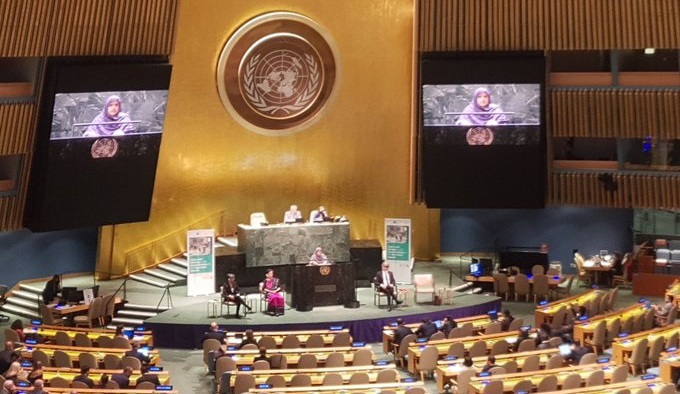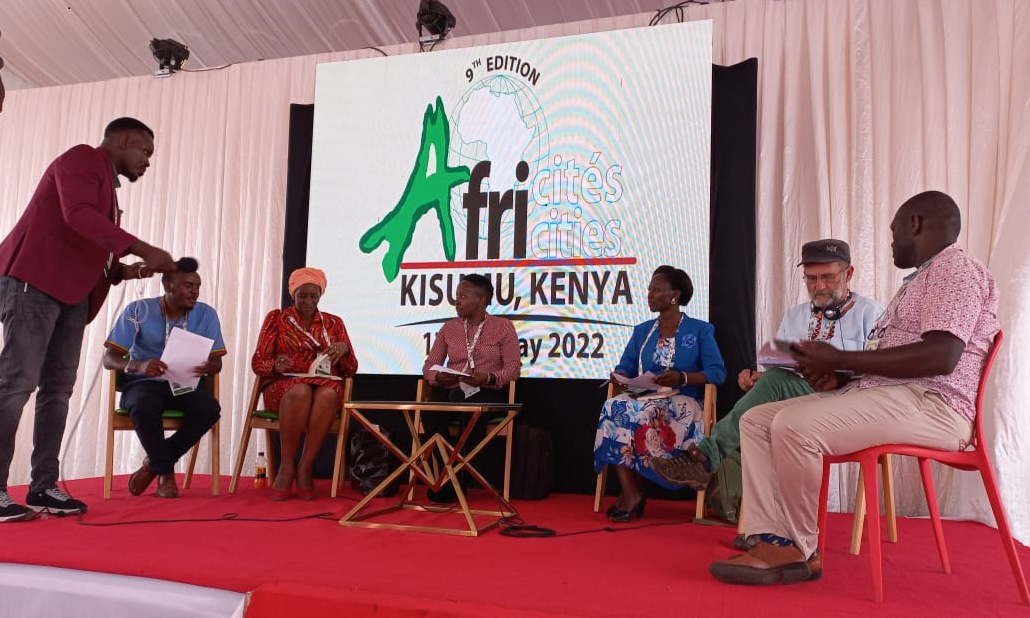Job Announcement:
Director of the International Network for
Economic, Social and Cultural Rights (ESCR-Net)
ESCR-Net seeks a Director to provide strategic guidance, management and leadership to expand the Network’s capacity and substantive work; to guide the process to relocate the Network’s Secretariat to a global South country; and to lead the Network in its new period of growth.
ESCR-Net is the largest global Network of organizations and activists from around the world working together to secure economic and social justice through human rights. ESCR-Net seeks to strengthen the field of all human rights, with a special focus on economic, social and cultural rights (ESCR), and further develop the tools for achieving their realization. Through ESCR-Net, groups and individuals share information and strategies, develop new tools and resources, support joint advocacy actions, and develop a collective voice. ESCR-Net has a core membership of more than 220 organizations and individual activists from over 65 countries.
ESCR-Net has begun a new phase of growth, and now seeks a dynamic Director to lead the Network through this important and exciting stage of ongoing development, realizing the Network’s greater potential. In recent years, significant progress has been made in consolidating and strengthening the collaborative work among members of the Network – particularly in the areas of adjudication of ESCR (including the campaign for the Optional Protocol to the ICESCR); corporate accountability; economic policy and human rights; women and ESCR; and social movements.
The new Director will build on this momentum and lead the Network to further deepen and expand its substantive areas of work. The new Director will also guide the process to relocate the ESCR-Net Secretariat while retaining a strategic presence for the Network at the international level. The ESCR-Net Board and Secretariat staff have undertaken a study to explore the benefits of relocating the Secretariat from New York City to the global South. Initial research has been conducted to identify a location that would provide a supportive operating environment for NGOs; strong connections to civil society base of ESCR work; lower operating costs; ease of travel; efficient technology and communications infrastructure; and good access to donor funds. At this stage, several potential locations have been identified, including Argentina, Brazil, India, Kenya, Malaysia, Mexico and South Africa. The new Director will plan and implement the process of research, decision-making and relocation of the Secretariat, transitioning with the Secretariat to a new location.
Specific responsibilities of the Director include the following:
- Develop strategic and programmatic direction for the Network, in response to members’ interests and needs and in consultation with the Board and Secretariat staff.
- Coordinate day-to-day activities, programs and administration of the Network, including managing the Secretariat staff and overseeing the administration of funds and financial planning.
- Raise funds for the operation of the Network and report to funders.
- Work with program staff to facilitate the thematic working groups, support ongoing projects and develop new activities.
- Organize meetings, conferences and other events aimed at developing the Network and providing a framework for joint advocacy activities.
- Represent the Network at international conferences, meetings and strategy sessions, and conduct ongoing outreach for the Network.
- Follow developments in the field of economic, social and cultural rights with an aim toward identifying strategic opportunities for the Network.
- Facilitate governance of the Network by working closely with the Board on setting policies and directions and working with Membership.
- Maintain lines of communication between the different Network structures: Board, Secretariat, Working Groups and General Assembly (Membership).
- Guide the process of decision-making and transition of the Secretariat from New York City to a new location in the global South, and transition with the Network to its new location.
The Director of ESCR-Net reports to a seven-member Board, elected by members of the Network.
Qualifications
The ideal candidate is someone who has excellent coordination, management and advocacy skills; substantive knowledge of the field of ESCR; a proven track record or demonstrated capacity to raise funds; and the strategic thinking and organizational skills needed to build a strong, decentralized, membership-driven, global Network.
Candidates should have the following qualifications (required):
- In-depth knowledge of economic, social and cultural rights, and a minimum of 7 years experience in the field of human rights, with progressively greater responsibility, including a minimum of 3 years of management experience.
- Strong leadership capacity, strategic vision and creativity to guide the development of the Network and its project and advocacy work.
- Strong management, coordination and interpersonal skills to run the operations of the Network and to catalyze collaborative work amongst its members.
- Excellent political judgment and facilitation skills to work with a wide range of civil society groups and interests as well as help position the Network on advocacy issues.
- Capacity to plan and prioritize well and to juggle multiple demands, and to work comfortably in a small, collegial office environment.
- Ability to bring a gender perspective into the work of the Network and to work effectively across language and cultural differences in coalitions and partnerships with other organizations and grassroots groups/social movements.
- Fluency in oral and written English, with excellent writing and public speaking skills
- A record of successful fundraising – or demonstrated capacity – from foundations and donors.
- A record – or demonstrated capacity – of successful human rights advocacy and/or campaigning.
In addition to the qualifications noted above, the following skills and experiences are desirable:
- Fluency in Spanish and/or French is highly desirable; knowledge of other languages, including Arabic or Hindi is also desirable.
- A Master’s level degree in law, politics, public policy, international development or related field.
- Familiarity and comfort working with new online and offline communication and collaboration technologies.
Salary and Benefits
ESCR-Net offers competitive compensation and generous employer-paid benefits including medical, dental and vision, and generous vacation and paid leave.
Location of the Position
The position is currently based in New York City and includes international travel. The new Director will initially work from New York City, and move with the Secretariat when it is relocated in order to ensure a smooth transition and continue to lead the work of the Network. In exceptional circumstances, the possibility will be opened up for the new Director to work from another location initially as long as sufficient time is spent in New York City to become immersed in the operations of the Network.
All interested applicants, regardless of nationality or current location, are encouraged to apply. ESCR-Net will assist the new Director in obtaining the necessary work authorization.
To Apply
Please send a curriculum vitae, a letter of interest, and the contact information of 3 references by January 24, 2011 to ESCR-Net by email director@escr-net.org using Director Search as the subject of your email. Please note that all application materials must be submitted in English. Due to the high volume of responses we have received in the past, only short-listed candidates will be contacted. Thank you for your understanding during this process.
For more information on ESCR-Net, please visit our website at www.escr-net.org
ESCR-Net, a Project of the Tides Center, is an equal opportunity employer. We strongly encourage and seek applications from people outside of the US, women, and people of color, including bilingual and bicultural individuals, as well as members of the Lesbian, Gay, Bisexual, and Transgender communities. Applicants shall not be discriminated against because of race, religion, sex, national origin, ethnicity, age, disability, political affiliation, sexual orientation, gender identity, color, marital status, medical condition (cancer-related) or the conditions Acquired Immune Deficiency Syndrome (AIDS) and AIDS Related Conditions (ARC). Applicants with Disabilities: Reasonable accommodation will be made so that qualified disabled applicants may participate in the application process. Please advise in writing of special needs at the time of application.


